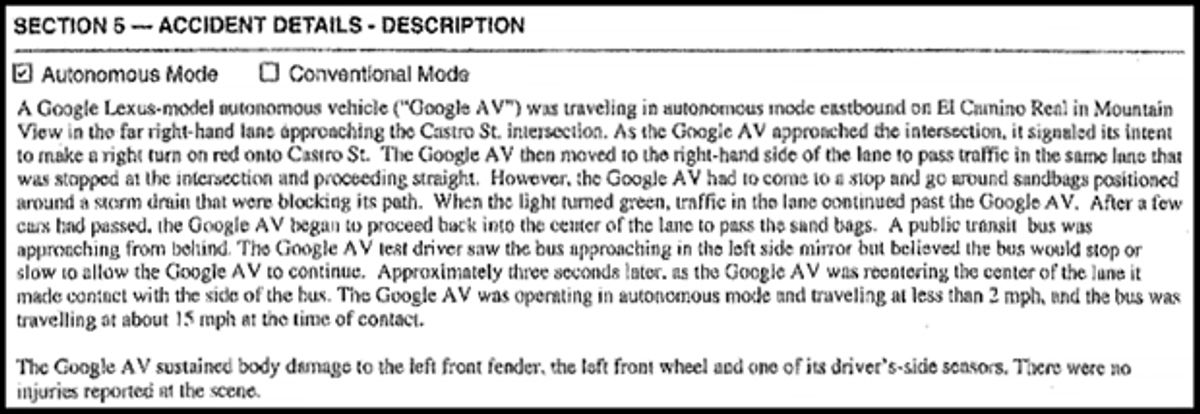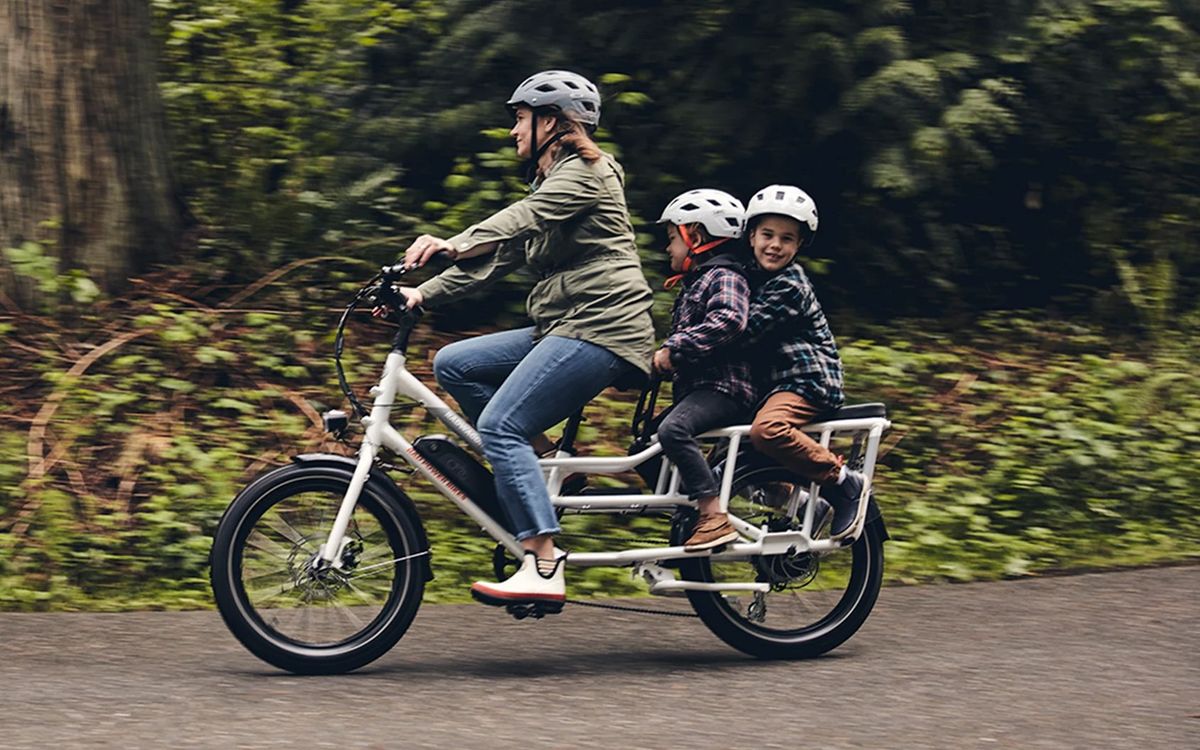The very first accident caused by a robotic car occurred last week, when a Google car had a little encounter with the side of a bus in Mountain View, Calif., home to Alphabet.
It was a sedate fender-bender, according to the report filed with the California Department of Motor Vehicles and signed by Chris Urmson, head of the company's self-driving car project. It describes how a Google Lexus model approached a red light, signaled that it wanted to turn right before stopping, and when the light turned green found that its way forward was blocked by sandbags placed around a storm drain. The car waited as a number of cars passed before it tried to get around the bags and into the center of the lane, at which point a bus approached from behind. The Google car’s driver did not intervene, assuming that the bus would either stop or let the Google car nose gingerly into traffic. But no: The Google car—moving at about 3 kilometers per hour (2 mph)—made contact with the bus, going about 24 kph (15 mph), producing damage to the car’s front fender and wheel and to a sensor.
There were no casualties except, perhaps, to corporate pride. Nobody’s perfect.
“This is a classic example of the negotiation that's a normal part of driving — we're all trying to predict each other's movements. In this case, we clearly bear some responsibility, because if our car hadn't moved there wouldn't have been a collision," Google said in its monthly report, technically due out Tuesday but made available to news organizations.
It had to happen eventually. Last year, Google admitted that its cars had experienced a number of near-misses. As Urmson noted at the time, none of those near-misses ever threatened to cause serious damage, and the rate at which they occurred had fallen, with only 5 near-misses taking place over a total of about 600,000 kilometers of testing done during the first 11 months of 2011. It really does suggest that Google cars drive more safely than the average person does.
Philip E. Ross is a senior editor at IEEE Spectrum. His interests include transportation, energy storage, AI, and the economic aspects of technology. He has a master's degree in international affairs from Columbia University and another, in journalism, from the University of Michigan.



